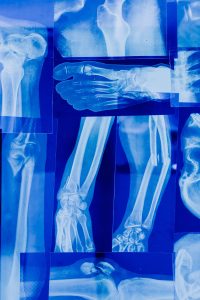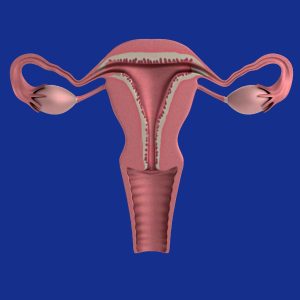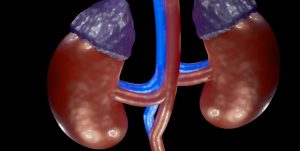
An endocrinologist is an internal medicine physician with an additional 2–3 years of training focused on the diagnosis and treatment of endocrine glands and the hormones they produce. Endocrine disorders are due to a hormonal imbalance (too much or too little) or an abnormal gland. Endocrine glands have complex functions affecting the entire body. Endocrine glands include the pancreas, thyroid, parathyroids, ovaries and testes, adrenals, and pituitary.
Why would you need to see an endocrinologist?
Both common and uncommon endocrine disorders can require the expertise of an endocrinologist. Here are 8 reasons to see an endocrinologist.
1. Diabetes mellitus

Diabetes is the most common endocrine disorder in the United States. In 2019, 37.3 million Americans had diabetes1—approximately 11.3% of the population. Nearly 1.9 million Americans have type 1 diabetes. We can group diabetes into categories, including type 1, type 2, and gestational. There are many other types of diabetes outside of this discussion.
Type 2 diabetes accounts for 90–95% of all diabetes. Insulin resistance and the inability of the pancreas to produce enough insulin lead to elevated blood sugars.
Type 1 diabetes is due to the body’s destruction of its own insulin-producing cells in the pancreas. In medical terms, it is autoimmune destruction. This leads to a complete deficiency of insulin. Treatment requires replacement of insulin via injections or an insulin pump.
Gestational diabetes refers to diabetes that develops during pregnancy. Obstetrician/gynecologists (Ob/gyns) screen women for gestational diabetes at 24-28 weeks of pregnancy.
2. Thyroid

The thyroid is a butterfly-shaped gland in the front of the neck. It produces the hormones T4 and (to a lesser extent) T3. Thyroid hormone affects nearly every organ in the body, including the brain, heart, gastrointestinal system, and bone.
Disorders of the thyroid gland include causes of a low thyroid level (hypothyroidism) and high thyroid level (hyperthyroidism).
The most common cause of hypothyroidism is Hashimoto’s thyroiditis. Symptoms of hypothyroidism can include fatigue, difficulty tolerating cold, dry skin, thinning hair, constipation, brain fog, weight gain, and irregular menstrual periods.
Causes of hyperthyroidism include Graves’ disease, toxic multinodular goiter, toxic adenoma, and less common causes. Symptoms of hyperthyroidism can include unintentional weight loss, anxiety, pounding or racing heart beat, hand tremors, frequent bowel movements, and heat intolerance.
Endocrinologists also diagnose and manage conditions related to the structure of the thyroid gland, such as thyroid nodules and thyroid cancer.
3. Obesity
It may surprise some to see obesity here. Obesity is NOT the result of lack of discipline or poor choices. Obesity is a complex, chronic disease that increases the risk of developing other diseases and health problems. It is not just a cosmetic concern.
Like other chronic diseases, obesity requires lifelong treatment. Obesity treatment involves nutrition, physical activity, medications, and/or surgery. A board-certified obesity medicine doctor can perform a thorough medical evaluation and create a personalized weight loss plan with you.
4. Osteoporosis

Osteoporosis is a disease of low bone mass and deterioration of bone structure. This leads to bone fragility and an increased risk of fractures of the hip, spine, and wrist. Don’t confuse it with osteoarthritis, which is joint pain from wear and tear of the joints.
According to the International Osteoporosis Foundation, osteoporosis affects one in three women and one in five men over the age of 50 worldwide.
Osteoporosis is often called a silent disease. Bone loss occurs with no symptoms. A person may not know they have osteoporosis until they sustain a fracture. Screening for osteoporosis is the first step. Safe and effective treatments can prevent and reduce the burden of an osteoporotic fracture.
5. Polycystic ovary syndrome (PCOS)

PCOS affects between 8% and 13% of reproductive aged women. The underlying causes of PCOS are not well understood but likely include altered hormone action, abnormal selection of a dominant follicle in the ovaries, and insulin resistance.
The diagnosis of PCOS requires 2 out of 3 criteria listed below and the exclusion of related conditions (thyroid disorder, etc).
- Infrequent or absent menstrual periods
- Evidence of elevated male sex hormone (androgens such as testosterone) by physical examination or blood test
- Polycystic appearance of the ovaries on ultrasound
6. Low testosterone (male hypogonadism)

Male hypogonadism refers to the failure of the testes to produce a normal concentration of testosterone and/or a normal number of sperm. Symptoms can include reduced libido, decreased spontaneous erections, erectile dysfunction, low sperm count, decreased energy and motivation, and poor concentration.
Low testosterone clinics and men’s health clinics have grown in popularity. These settings come with the risk of incorrect diagnoses and inappropriate treatment that leads to health risks and harm. Seeing an expert such as an endocrinologist can help determine whether low testosterone truly exists, why it does, and how to treat it safely and effectively.
7. Adrenal

The adrenal glands are 2 pyramid or crescent-shaped glands. One sitting above each kidney. They produce steroid hormones critical for life, such as cortisol and aldosterone.
Disorders of the adrenal glands include abnormal levels of the above steroid hormones. Examples include too little cortisol (adrenal insufficiency), too much cortisol (Cushing syndrome), and too much aldosterone (hyperaldosteronism).
CT and MRI scans sometimes reveal incidental adrenal masses. These masses, referred to as adrenal incidentalomas, require a thorough evaluation by an endocrinologist.
8. Hypercalcemia

Calcium is a mineral necessary for life. Most people associate it with bones, which are the primary storage site of calcium in the body. Calcium serves important functions beyond the bone.
Hypercalcemia is an elevated calcium level in the blood. Parathyroid hormone tightly regulates calcium in the blood. The parathyroid glands produce parathyroid hormone. Parathyroid glands are 4 small glands neighboring the thyroid gland.
It is important to first determine the cause of an elevated calcium level. Causes of hypercalcemia include an inappropriately elevated parathyroid hormone level (primary hyperparathyroidism), certain cancers, medications, and vitamin D intoxication. Treatment varies according to the underlying cause.
Next Steps
This list is not exhaustive. You can find more reasons to see an endocrinologist on our specialties page. If you need the care of an endocrinologist, we are happy to help. Schedule an initial consultation to discuss how we can create a personalized plan for you. If you have comments or questions about the role of an endocrinologist, share them in the comments section.
Related Questions
What does an endocrinologist do on the first visit?
An endocrinologist will review your medical history and current medical problems, perform a physical exam, and likely order blood tests to check relevant hormone levels.
What diseases does an endocrinologist treat?
Endocrinologists treat disorders due to a hormonal imbalance (too much or too little) or an abnormal gland. Examples include diabetes mellitus, hypothyroidism, hyperthyroidism, thyroid nodules, obesity, osteoporosis, polycystic ovary syndrome (PCOS), and low testosterone (male hypogonadism).




